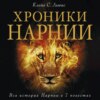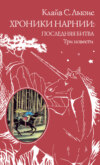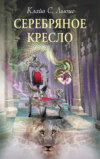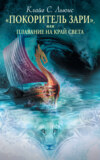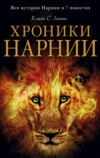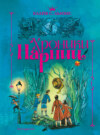Loe raamatut: «The Weight of Glory: A Collection of Lewis’ Most Moving Addresses»

CONTENTS
Cover
Title Page
Introduction by Walter Hooper
Preface to the Original Edition by the Author
The Weight of Glory
Learning in War-Time
Why I Am Not a Pacifist
Transposition
Is Theology Poetry?
The Inner Ring
Membership
On Forgiveness
A Slip of the Tongue
About the Author
Also by C. S. Lewis
Copyright
About the Publisher
INTRODUCTION
In his beautiful peroration at the end of his sermon “The Weight of Glory”, C. S. Lewis, after commenting on the immortality of the human soul, says, “This does not mean that we are to be perpetually solemn. We must play. But our merriment must be of that kind (and it is, in fact, the merriest kind) which exists between people who have, from the outset, taken each other seriously.”
I believe that this and similar encouragements by Lewis contribute significantly to the subject of what constitutes Christian behaviour. Having done the best we can to perform whatever God demands, should we not at least enjoy the good He sends us? Willing ourselves to be “perpetually solemn” when there is no reason for it seems to me not only a rejection of the happiness we could have on earth, but also to jeopardise our capacity to enjoy it in the future when every possible reason for unhappiness has been finally swept away.
We know from his earliest writings that Lewis was born with a sense of fun, and that it was considerably maimed by an entanglement of atheism and ambition. Perhaps a fiercely serious ambition for whatever it might be can never live in harmony with the merriment he describes. Certainly, Lewis could write no great works until he was converted to Christianity in 1931, after which he ceased to take much interest in himself. If it is objected by those of a lugubrious disposition that the Christian religion is serious and of great solemnity, then my answer is, “Yes, of course. And not taken seriously enough.” But Lewis comes to our rescue at this point by showing us in his book The Four Loves how easily things can become other than they should be through the wrong kind of seriousness.
In editing these essays I have been led to reflect on that ever mysterious, but instinctive notion we seem to be born with that tells us just how merry, how serious, how whatever you will, we know we can be with someone else. My relation to Lewis may be similar to that of others, but it can’t be exactly like. As this book is being edited primarily for Americans, I should explain that after I had corresponded with Lewis for some years, he invited me to come over in the spring of 1963 from my native United States for what I hoped would be as much as a single conversation over a cup of tea. I don’t believe in luck, but I do believe in angels, and the coveted tea party turned out to be (if it needs a name) “The Observations of a Late Arrival” or “A Single Summer with C.S.L.” In any event, as the sources of our firsthand evidence about him decrease with the years, I hope that mine will be of some interest to those who feel as I do about that merriment “of the merriest kind” of which there seems no abundance these days.
It took some time for an American, such as myself, to adapt to English “conveniences”. I see, for instance, from my diary of 7 June 1963 that during a longish visit with Lewis we drank what seemed gallons of tea. After a while I asked to be shown the “bathroom”, forgetting that in most homes the bathroom and the toilet are separate rooms. With a kind of mock formality, Lewis showed me to the bathroom, pointed to the tub, flung down a pile of towels, and closed the door behind me. I returned to his sitting-room to say that it was not a bath I wanted but … “Well, sir, ‘choose you this day,’” said Lewis, bursting with laughter as he quoted the prophet Joshua, “that will break you of those silly American euphemisms. And now, where is it you wanted to go?”
Tasuta katkend on lõppenud.












